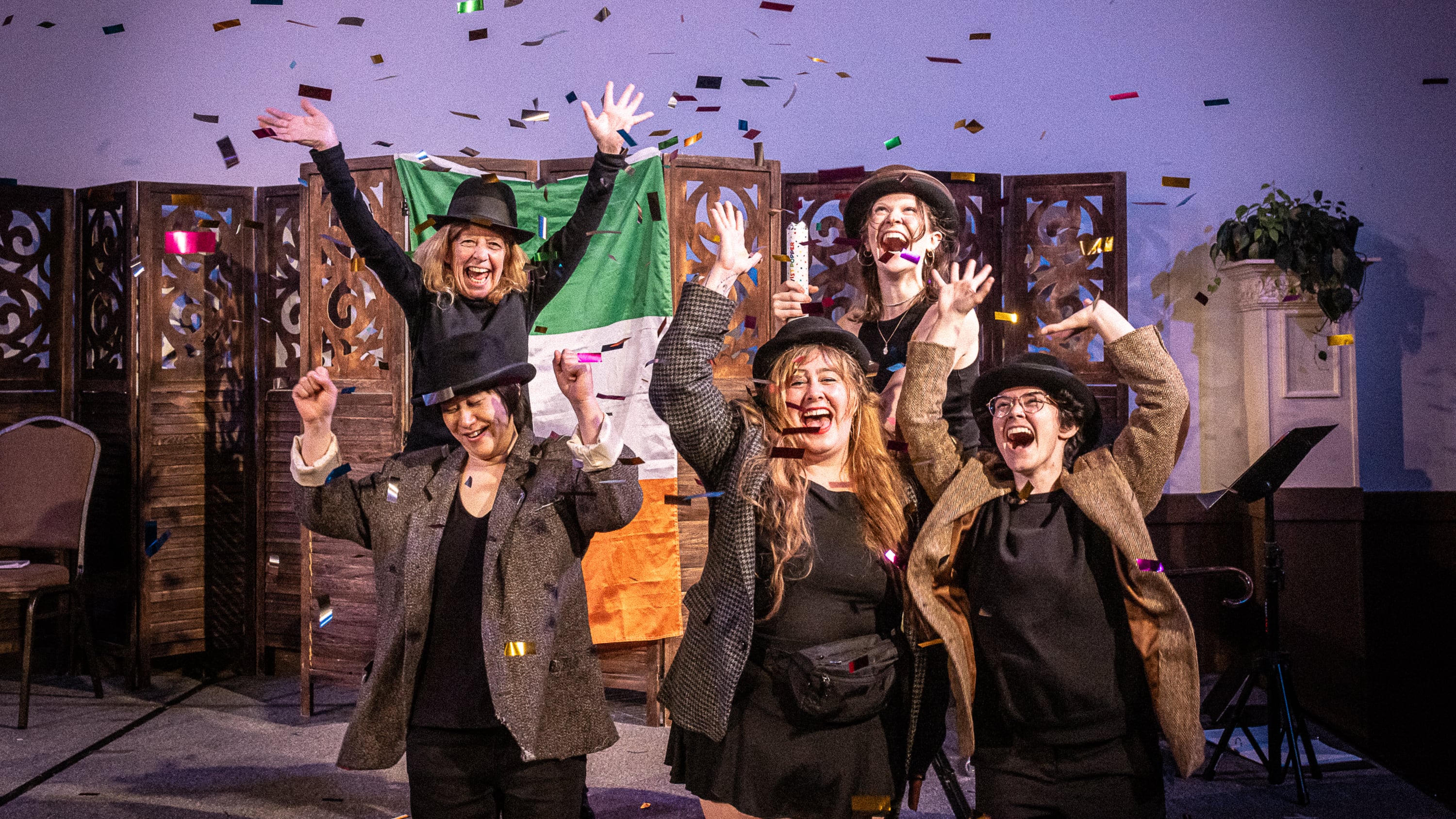Samuel Beckett’s Waiting for Godot has earned its reputation as a theatrical masterpiece, but it’s not without its staging limitations. The play has only five characters, and Beckett insisted they all be played by male actors—a policy his estate has maintained after his death. Corrib Theatre has responded with Godot Is a Woman, a collection of staged readings of plays inspired by the absurdist classic, but from a distinctly female perspective, allowing a new group of artists to tackle Godot‘s dark comedy and universal themes. The result is a poignant exploration of loneliness, grief and triumph, all wrapped in the familiar bleakness of Beckett’s words.
The Program A night on Thursday, May 8, opened with Black and Blue by Portland playwright Sela Ellen Underwood. Narrated by Alex Henriquez, the story follows two women who, by some magical realist twist of fate, live in the same apartment but only see each other in the hallway outside their front door. We’re never given an explanation for this fantastical schism; rather, the focus is on the women’s lives, as they argue, commiserate, and come together over the course of decades.
There’s a stark contrast in personalities on display: The first of our nameless heroines (Jerilyn Armstrong, Lauren Saville Allard, Jo Pierce) describes herself as feeling too little, incapable of maintaining intimate relationships and closing herself off to the rest of the world. The second (Tyharra Cozier, Cynthia Shur Petts, Sofía Molina) feels too much, staying in a relationship she recognizes as toxic and controlling. Despite their differences, the two women feel the same way: alone. Like Godot‘s Vladimir and Estragon, or Moses and Kitch in Antoinette Nwandu’s 2017 play Pass Over from earlier in Corrib’s season, these disconnected neighbors need the strained, sometimes caustic bond they share. Black and Blue may not share Beckett’s bitter witticisms, but it understands his views on solitude and despair, even as it ends on a ray of hope.
From there the program shifted to Not Beckett, a collection of short plays by women and nonbinary writers from across the Irish diaspora responding to Godot. These shows copy the minimalism of their inspiration, but pick and choose which of the play’s many themes to emphasize, resulting in a string of stories that find humor, heartbreak and truth in abstract circumstances.
The strongest from this lineup was Wait by poet FelisSpeaks, a one-woman show in which Comfort (Cozier), a Nigerian wife and mother, puts her dreams for herself on hold while her husband pursues his fortune abroad. The story adds a chauvinistic backdrop to the plight of Godot‘s tramps and ends up as an emotionally stirring counterpoint to the source material. Cozier is particularly strong in the lead role, putting all of her longing and sadness into such a brief performance and coming away triumphant.
Given that the program was a staged reading, sets and blocking were somewhat minimal. The exception is a carefully arranged pile of junk upstage that contains the props that will be used throughout Not Beckett, as well as some shout-outs to Godot, including a portrait of the playwright, an Irish flag, and the signature derby caps the main characters sport. Godot Is a Woman instead chooses to focus on the strength of its scripts and the talent of its performers, creating a more intimate space for the audience to take in the stories and understand their messages.
Despite its contrarian origins, Godot Is a Woman isn’t a refutation of Beckett’s most famous work. Rather, it celebrates the enduring nature of the play and gives a new batch of artists the chance to contribute their own voices and perspectives alongside it. It works to show that there’s something in Beckett’s words for viewers of all kinds to relate to. Not everyone has waited for Godot, but anyone who has thrown their hands up and said “Nothing to be done” could find something to relate to in these shows.

